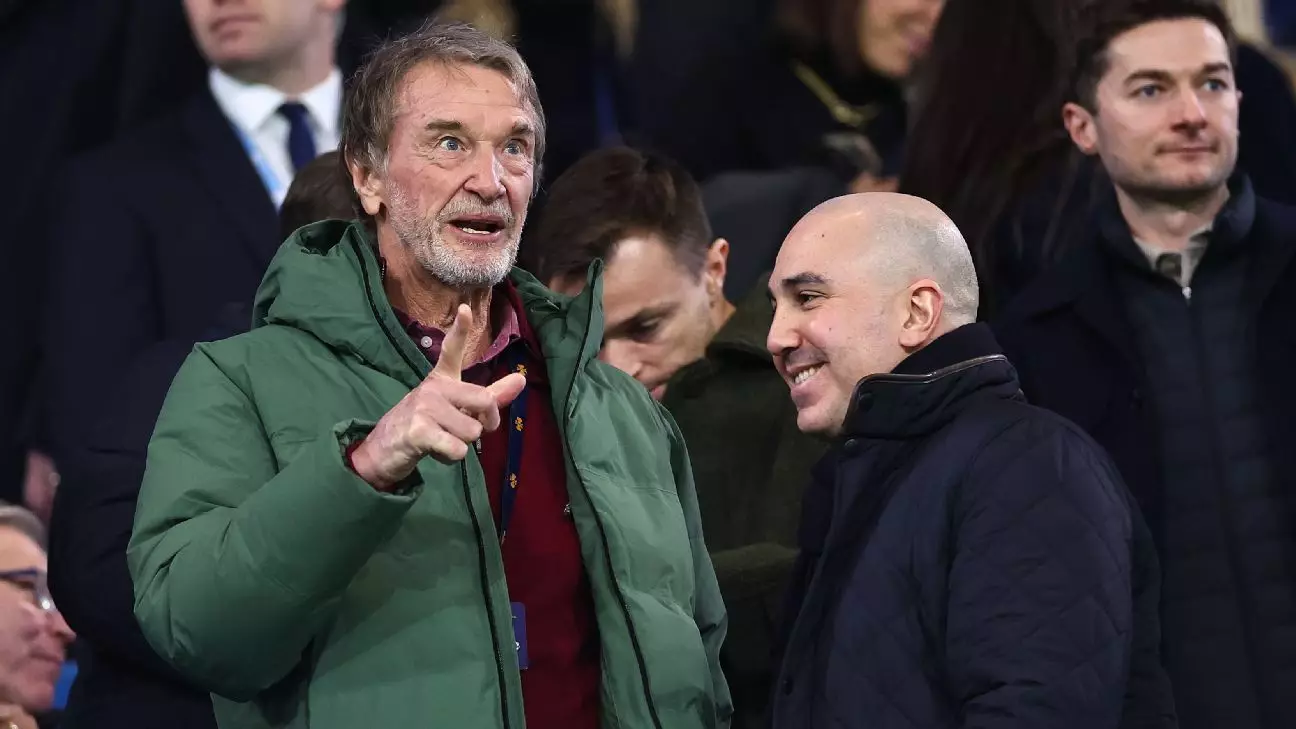In a significant development for Manchester United, Sir Jim Ratcliffe has escalated his investment in the club, acquiring an additional 1.24% shareholding valued at roughly £79 million ($99.6 million), as disclosed in recent filings with the U.S. Securities and Exchange Commission (SEC). This latest transaction boosts Ratcliffe’s total ownership stake to 28.94%, following his previous commitment last December to purchase a 27.7% share for £1.2 billion. Despite Ratcliffe’s growing influence, the Glazer family continues to hold the majority of shares, maintaining their longstanding control since acquiring the club in 2005.
While Ratcliffe’s increased stake demonstrates his commitment to the club, the economic implications of this investment raise several questions. ESPN sources indicate that the additional funds Ratcliffe has invested will not be funneled into the January transfer window, reflecting a strategic pivot towards broader operational needs rather than immediate team enhancement. This financial strategy has come on the heels of significant losses, exceeding £300 million in the past three years, alongside a cost-cutting initiative that has notably affected the workforce, resulting in over 250 job redundancies.
Ratcliffe’s tenure, however, has not been devoid of controversy. His management decisions have faced scrutiny, particularly regarding a hike in ticket prices, which has disheartened many fans. Moreover, his perceived neglect of Manchester United’s women’s team has sparked further discontent, suggesting a disconnect between administrative decisions and supporter expectations. Critics argue that Ratcliffe’s focus remains predominantly on financial recovery at the expense of a holistic approach to club management.
Another decision that has drawn ire is the premature extension of Erik ten Hag’s contract, only to face a swift dismissal five months later. Coupled with Rashford’s unceremonious exit of sporting director Dan Ashworth shortly after a substantial investment in his appointment, these decisions have painted a picture of instability and inconsistency in leadership, further complicating ratcliffe’s role at the organization.
As the club grapples with its precarious financial position and mounting criticism of leadership decisions, the future of Manchester United under Ratcliffe remains uncertain. The impact of his stake acquisition will depend on whether he can translate this financial investment into a revitalization of the club’s on-field performance and fan relations. The need for a transformative strategy that encompasses all facets of the club—from player recruitment and development to fostering community ties—is paramount.
While Sir Jim Ratcliffe’s increased stake in Manchester United marks a notable chapter in the club’s narrative, it concurrently underscores a broader range of challenges. Bridging the increasing rift between administration and the fanbase will be crucial for restoring faith in the club’s future as the Glazer family continues to navigate their unyielding majority ownership.

